Are you looking to streamline your talent acquisition process and attract the best candidates in the industry? In today's competitive job market, having a clear and effective recruitment strategy is more important than ever. Our talent acquisition proposal provides innovative solutions tailored to your unique hiring needs. Dive in to discover how we can help transform your recruitment efforts and build a stronger teamâread on to learn more!

Company Branding and Vision Alignment
A talent acquisition proposal focusing on company branding and vision alignment emphasizes the importance of aligning potential candidates with the organizational culture and goals. An effective strategy highlights the unique attributes of the company brand, such as innovation, diversity, community involvement, and sustainability practices. By establishing a clear vision statement, perhaps outlining targets for the next five years, the proposal should detail how the recruitment process can attract candidates who share these values. Integrating social media campaigns, engaging storytelling, and employee-centric content can enhance the company's reputation as an employer of choice. This alignment not only strengthens the overall brand but also fosters a dedicated workforce that contributes to long-term success, ultimately resulting in improved retention rates and enhanced employee satisfaction.
Target Skills and Expertise
In the competitive landscape of recruitment, identifying target skills and expertise is essential for sourcing top talent. Specifically, technical skills (such as programming languages like Python or JavaScript), soft skills (including communication and teamwork), and industry-specific knowledge (like experience in healthcare technology or financial services) form the backbone of effective hiring strategies. For instance, organizations in the software development sector increasingly seek candidates proficient in Agile methodologies, which enhance project delivery times. Moreover, a focus on emerging trends such as artificial intelligence (AI) and machine learning can elevate a company's competitive advantage by attracting individuals who can drive innovation. Assessing candidates through targeted skill assessments and behavioral interviews ensures alignment with organizational needs. This approach not only improves the quality of hires but also aids in fostering a culture of excellence and adaptability in today's dynamic workforce environment.
Recruitment Channels and Strategies
Talent acquisition strategies focus on the recruitment process to effectively attract, engage, and hire suitable candidates for organizations. Various channels are utilized, including job boards like LinkedIn, Indeed, and Glassdoor to reach a broader audience. Social media platforms such as Facebook and Twitter are leveraged for employer branding and showcasing organizational culture. Networking events, industry conferences, and career fairs provide opportunities for direct interaction with potential candidates. Additionally, recruitment agencies and headhunters specialize in identifying top talent within specific industries. Employee referral programs encourage current staff to recommend candidates, often resulting in higher retention rates. Utilizing analytics tools aids in assessing the effectiveness of these channels, allowing continuous improvement of recruitment strategies to meet organizational goals.
Candidate Engagement and Experience
Candidate engagement and experience are crucial elements for successful talent acquisition in organizations. Effective engagement strategies, such as personalized outreach and timely communications, can significantly enhance a candidate's perception of the hiring process. Metrics indicate that companies utilizing structured candidate engagement practices reduce time-to-fill positions by 20% on average. Creating a positive experience during the recruitment cycle fosters a sense of connection and enhances employer branding, particularly in competitive industries like technology and healthcare. Platforms like LinkedIn, utilized for networking and brand presence, play a vital role in reaching and engaging top talent. Additionally, implementing feedback mechanisms post-interview can help organizations refine their processes, ensuring alignment with candidate expectations and improving overall satisfaction rates.
Diversity and Inclusion Goals
Diversity and inclusion goals significantly enhance the workplace, fostering innovation and creativity through a variety of perspectives and experiences. Companies with diverse teams, specifically those that improve representation in gender, ethnicity, and socioeconomic status, often see increased performance metrics. For instance, McKinsey's 2020 report indicated that firms in the top quartile for gender diversity on executive teams were 25% more likely to have above-average profitability compared to those in the bottom quartile. Implementing targeted strategies for recruiting underrepresented groups in talent acquisition processes can lead to a more equitable hiring framework. Additionally, companies like Google and Salesforce actively promote inclusive hiring practices, showcasing commitment to training hiring managers and maintaining diverse candidate pipelines. Emphasizing diversity and inclusion not only aligns with social responsibility but also enhances the overall organizational culture, making it more attractive to top talent.

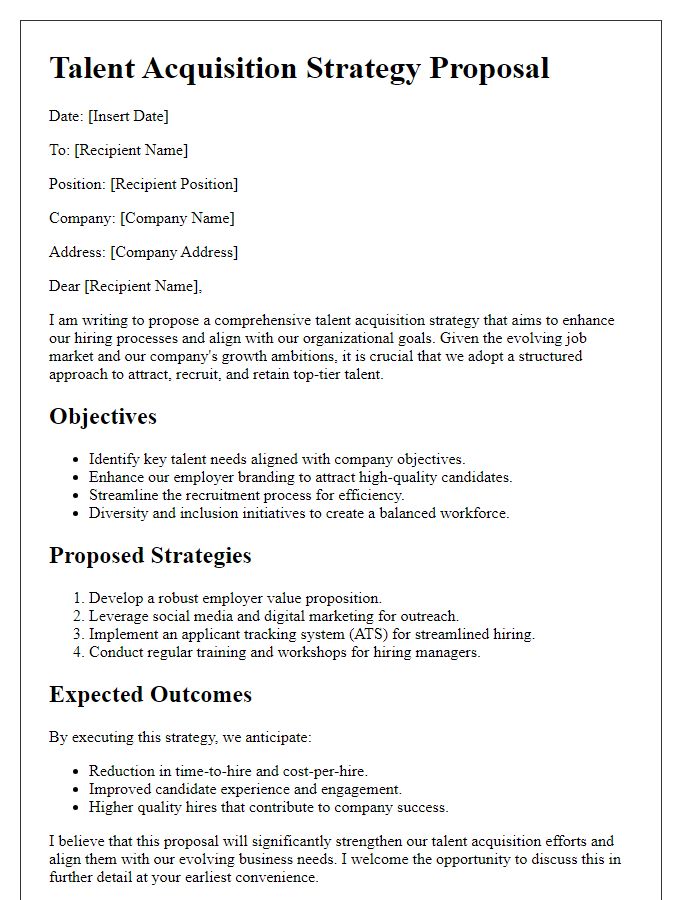
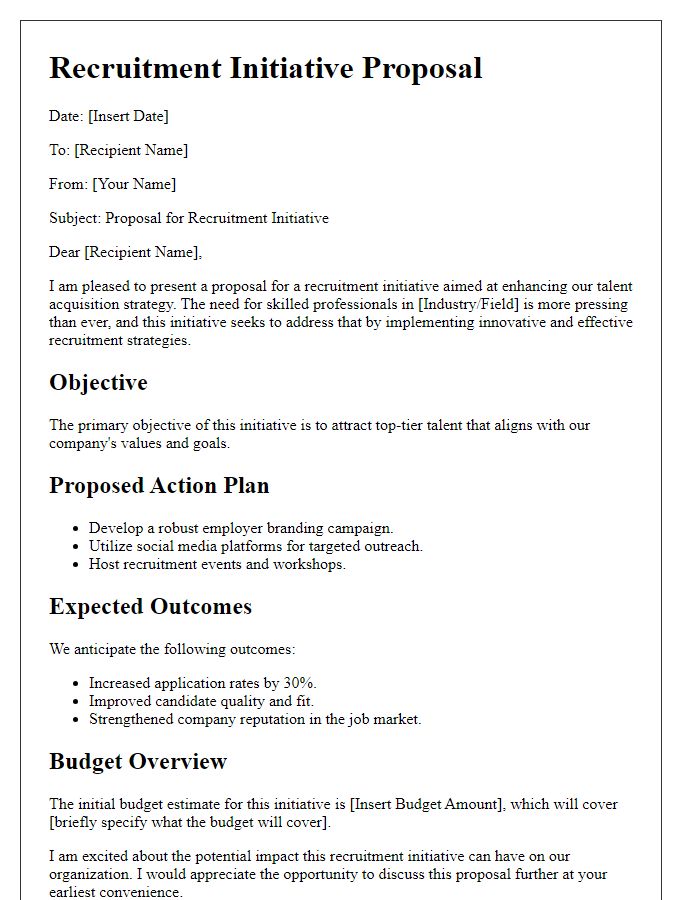
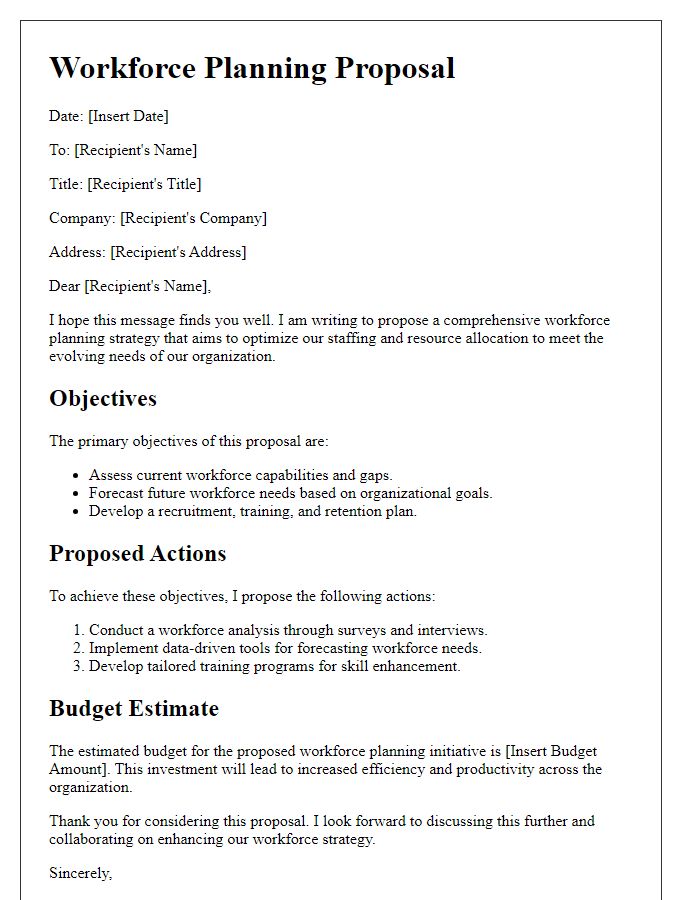
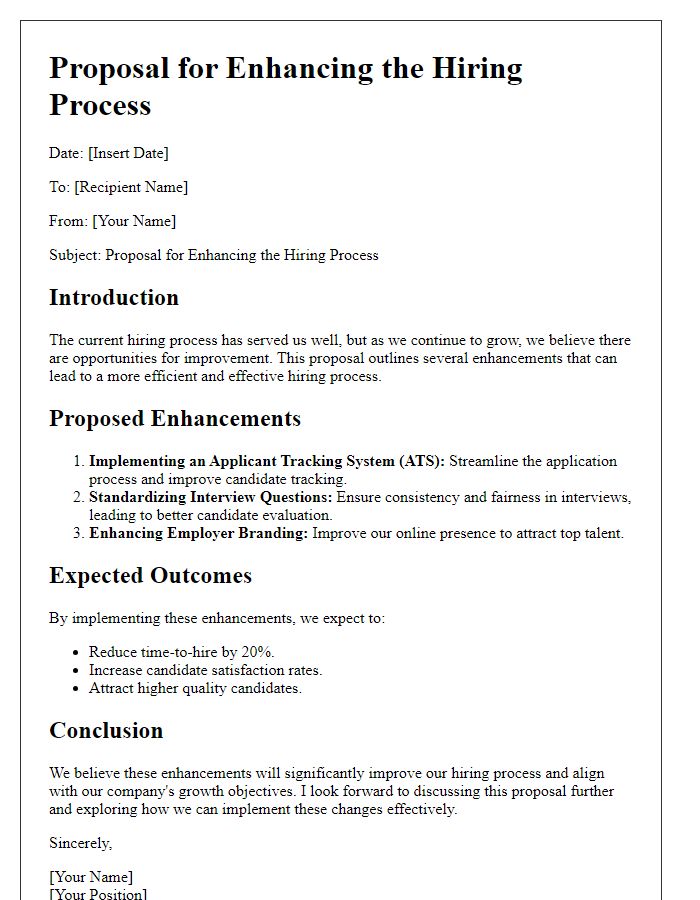
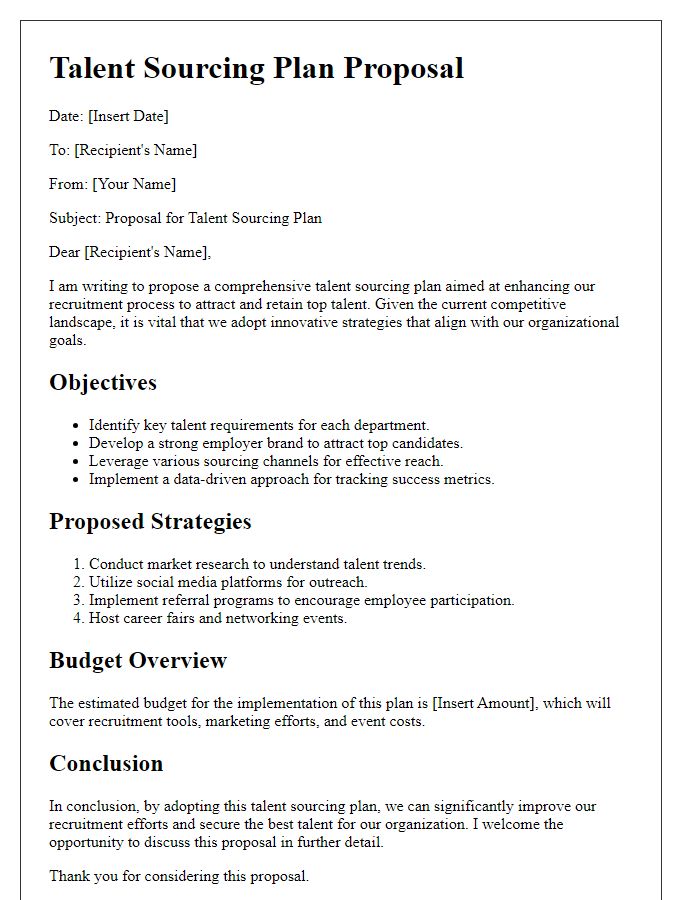
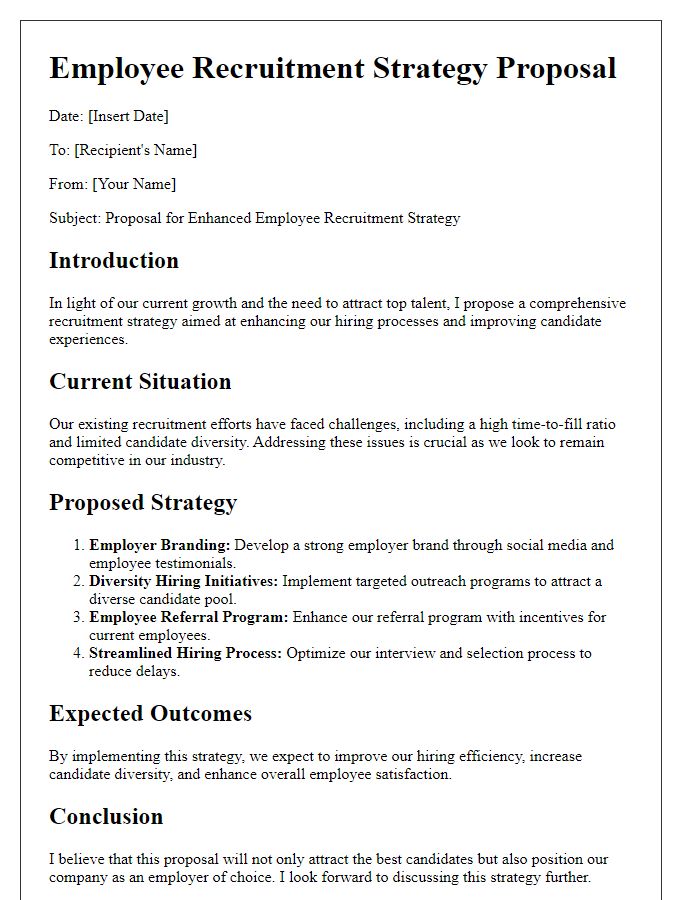
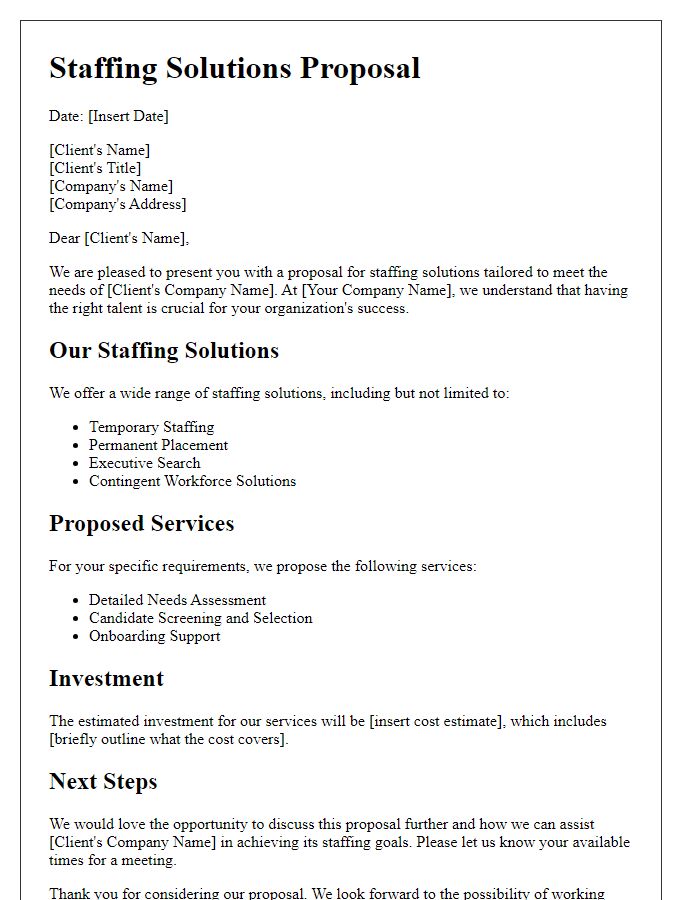
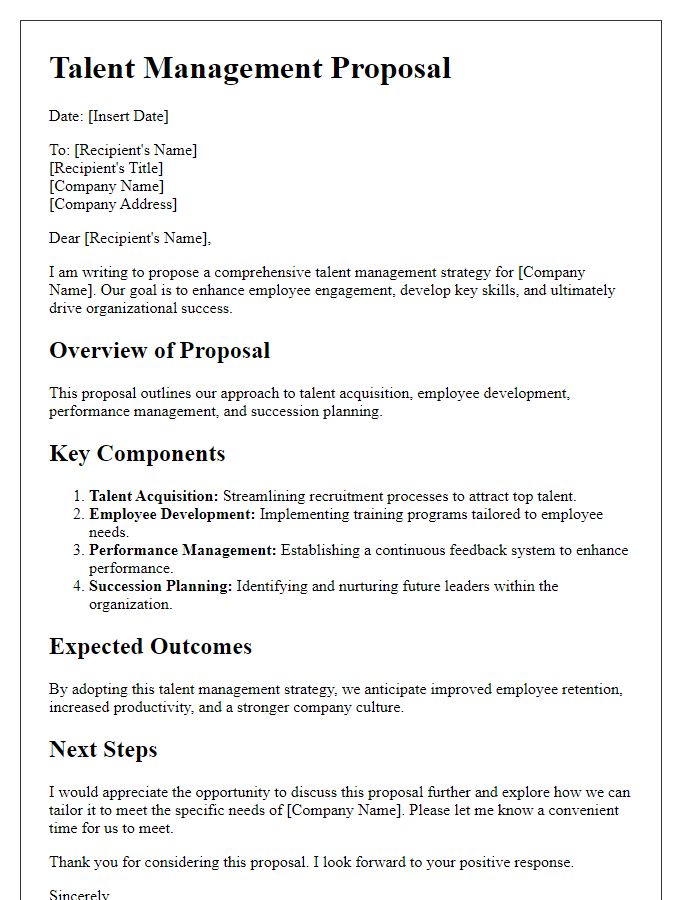
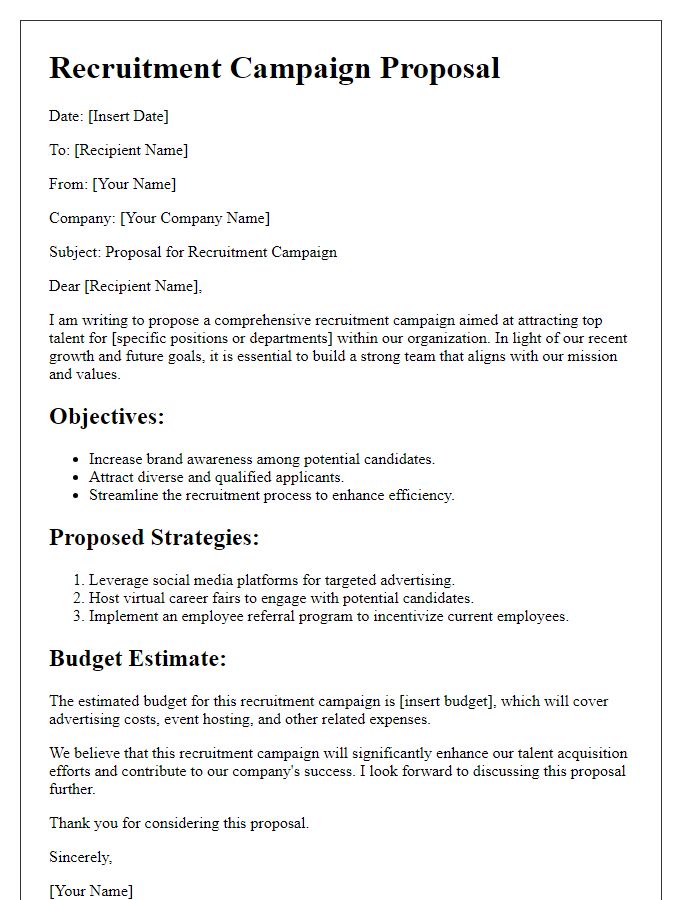
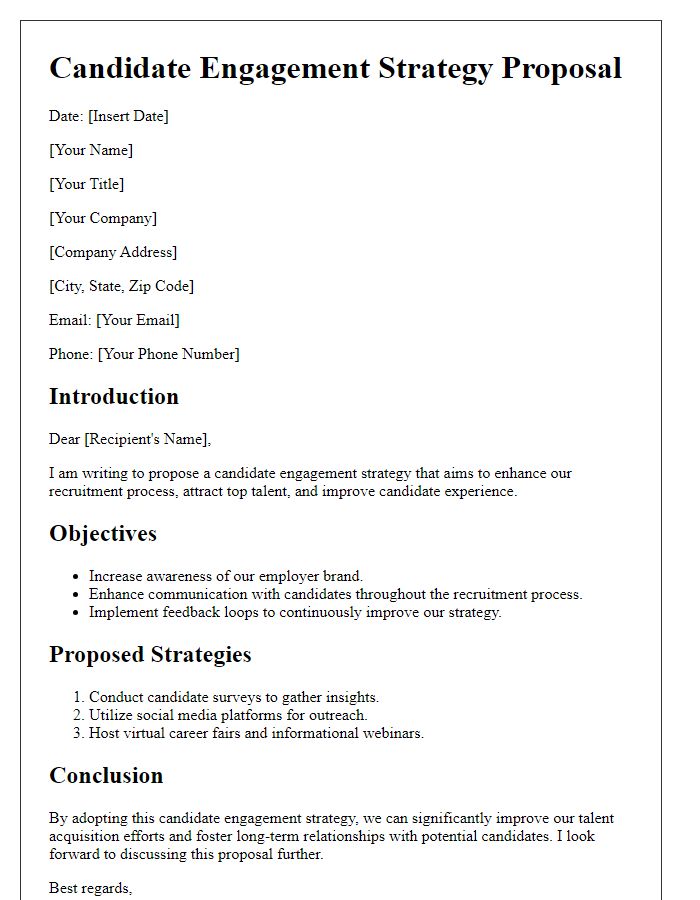


Comments